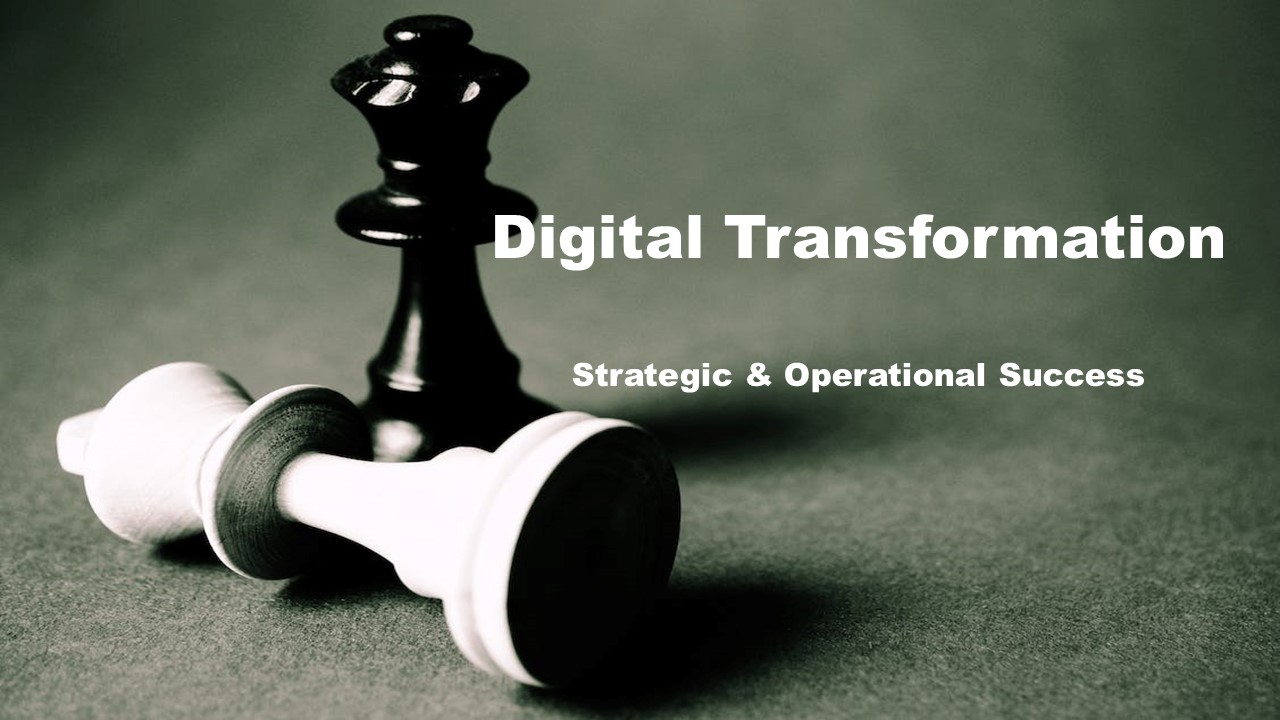Digital Transformation: Strategic and Operational Success

In today's rapidly changing digital landscape, businesses need to be proactive in adapting to new technologies and trends in order to remain competitive. Digital transformation refers to the integration of digital technology into all areas of a business, leading to fundamental changes in the way it operates and delivers value to customers. This process can bring numerous strategic and operational benefits, but it's important to approach it with a well-thought-out plan. In this blog, I will discuss the strategic and operational benefits of digital transformation and key factors for organizations to consider when planning their digital transformation journey.
Strategic Benefits of Digital Transformation
Improved Customer Experience: In the digital age, customers expect a seamless and personalized experience with the businesses they interact with. By leveraging technology and data, organizations can better understand their customers' needs and preferences, providing a more personalized and satisfying experience. This can lead to increased customer loyalty and a better brand reputation.
Increased Efficiency and Productivity: Automation of manual processes, digitization of workflows, and improved communication and collaboration are all hallmarks of digital transformation. By streamlining operations and freeing up valuable time, digital transformation can help organizations work more efficiently and productively, reducing operational costs and increasing productivity.
Better Decision Making and Data-Driven Insights: With access to vast amounts of data and advanced analytical tools, digital transformation enables organizations to make informed, data-driven decisions. This can help organizations identify new opportunities, mitigate risks, and make better decisions overall.
Increased Market Reach and Competitive Advantage: Digital transformation also opens up new market opportunities and allows organizations to reach a wider audience. By having a strong online presence and leveraging digital marketing, businesses can reach new customers, expand into new markets, and remain competitive in the rapidly changing digital landscape.
Operational Benefits of Digital Transformation
Automation of Processes: One of the most significant operational benefits of digital transformation is the automation of manual processes. This can help organizations streamline operations, reduce errors, and free up time for employees to focus on more strategic tasks.
Improved Collaboration and Communication: Digital transformation also enables organizations to improve collaboration and communication between employees, regardless of location. This helps teams work more effectively and efficiently, improving overall productivity and reducing the time it takes to complete projects.
Enhanced Data Management and Security: By leveraging cloud computing and other digital technologies, organizations can improve their data management processes and ensure that data is secure, easily accessible, and properly maintained.
Optimized Supply Chain Management: Digital transformation can also help organizations optimize their supply chain management processes. This includes automating procurement processes, tracking the flow of goods, and improving the overall efficiency of the supply chain.
Key Factors to Consider When Planning Digital Transformation
Assessment of Current Technology and Infrastructure: Before embarking on a digital transformation journey, it's essential to assess your current technology and infrastructure. This includes evaluating your current systems, identifying areas for improvement, and ensuring that your technology is up to date and capable of supporting your digital transformation goals.
Alignment with Business Goals and Objectives: Digital transformation should always be aligned with your organization's business goals and objectives. This means considering how digital transformation can support your business strategy and ensuring that it fits in with your overall vision for the future.
Employee Training and Skills Development: Your employees are the backbone of your organization, and it's crucial to provide them with the necessary training and skills development to support digital transformation. This includes training on new technologies, tools, and processes, as well as providing opportunities for employees to learn and grow.
Integration with Legacy Systems: In many cases, organizations have existing systems and processes in place that may not be fully compatible with new digital technologies. It's important to consider how these systems can be integrated with new technologies to ensure a smooth and seamless transition.
Investment in Technology: Digital transformation requires a significant investment in technology, both in terms of hardware and software. Organizations must carefully consider their budget and allocate resources accordingly to ensure that they can successfully implement and maintain the technologies they need.
Cybersecurity: With the increasing use of digital technologies, the risk of cyber attacks and data breaches is also on the rise. Organizations must ensure that their digital transformation efforts include a strong focus on cybersecurity, including regular updates to security protocols and regular security audits.
In conclusion, digital transformation is a vital process for businesses looking to remain competitive and meet the changing demands of their customers. By leveraging technology and data, organizations can reap numerous strategic and operational benefits, including improved customer experience, increased efficiency and productivity, and better decision making. However, it's important to approach digital transformation with a well-thought-out plan, considering factors such as assessment of current technology, alignment with business goals, employee training, and cybersecurity. With the right approach, digital transformation can be a powerful tool for business success.

